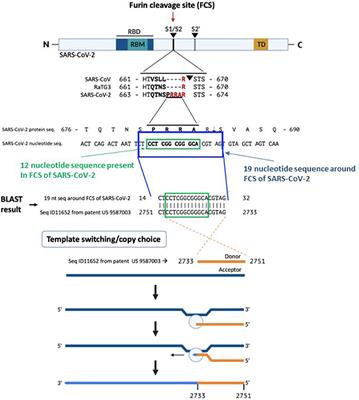Before the 2020 election, i posted that the democrat party was so corrupt that it should be dissolved, and a new party be started, mainly for the non-radical liberals who want a party of rational ideas and purposes, now it seems most of america, if they are well informed, would probably agree, at least i hope, In this video Mark sums it up well...
https://rumble.com/vvnsnw-levi....ns-rant-against-left
Discover posts
I agree with about 90 percent of what is said in those two video messages
————————————————————————-
Justin Martyr stood as a sign of contradiction against the decadent culture of his era.
In reading about his life, we immediately learn that he was a seeker.
By constantly searching for deeper knowledge and asking questions, he found his way to Christianity through Stoicism, Peripatetism, Pythagoreanism, and Platonism.
An encounter with an old Christian man along the seashore was Justin’s final step.
In his Dialogue with Trypho, Justin wrote: “straightway a flame was kindled in my soul; and a love of the prophets, and of those men who are friends of Christ, grew in me; and … I found this philosophy alone to be safe and profitable”
He would spend the rest of his life searching for truth, goodness, and beauty, and working to share it with others.
Justin’s love for philosophy turned him into an itinerant teacher, and he found his way to Rome.
When he arrived there, Justin’s passion for philosophy and reason led him to call for a reasoned hearing for Christianity within the culture of Rome.
To the emperor, Antoninus Pius, he said:
“you do not examine the charges made against us; but, yielding to unreasoning passion, and to the instigation of evil demons, you punish us without consideration or judgment.”
Rather, he proclaimed,
“Justice requires that you inquire into the life both of him who confesses and of him who denies, that by his deeds it may be apparent what kind of man each is” (First Apology).
Justin’s claim was that a man should be respected for the value he brings to the society around him.
With this in mind, Justin argued for the social value of Christians and Christianity.
One of Justin’s primary points about the social value of Christianity was that followers of Jesus eschewed the accumulation of wealth. Instead of living from the vice of greed, they “directed all excess wealth to the common good” (First Apology). That is, they spent any money they did not need for life’s necessities, in caring for the poor. This was certainly contrary to the accepted cultural norm, where the poor were often left for dead.
On top of caring for the poor, Christians also chose to live together with people of other ethnicities. Thus, they created a social melting pot and showed that the truth of the Gospel was truly for anyone and everyone who would receive it.
Beyond that, Christians made a practice of “praying for their enemies,” those who would persecute them for their beliefs (First Apology). Justin was making the bold point that Christians’ profound desire was to live in harmony with everyone thus building the New Jerusalem.
Perhaps the most countercultural virtue championed by Justin was chastity.
“We who formerly delighted in fornication,” he wrote, “now cleave to chastity” (First Apology).
Rampant sexual license, of course, was an ingrained part of Roman society and culture.
It was radical for Justin and Christians to suggest any alternative way of life. Yet, he was trying to show that the way of Christian virtue was, in fact, better for Roman society because chastity would prevent the use, abuse, and exploitation of all persons.
Finally, Justin exhorted all people, to a deeper knowledge and love of God the Father and His Incarnate Son. He called his listeners and readers to “consecrate themselves to God alone”; and to grow in relationship with Jesus, the Incarnate Word of God, “since also He became man for our sakes, that, becoming a partaker of our sufferings, He might also bring us healing” (Second Apology).
———————————————————————-
Sin/Evil/Physical Matter/Gnostic Mysticism and Human Nature
Part 1: https://www.youtube.com/watch?v=Aoo52tLPVBc
Part 2: https://www.youtube.com/watch?v=kDVHPaSXSgo
#tulip

A complicated paper but summarized well by a family friend, genetic scientist working in Cambridge, UK
————————————————————————
Why was there a patent in 2016 for SEQ ID11652 which contained the 12 nucleotide furin cleavage site (FCS)?
The likelihood of the sequence being in SARS-Cov-2 randomly is very rare - 3.21 ×10−11.
The proprietary sequence SEQ ID11652, read in the forward direction, encodes a 100% amino acid match to the human mut S homolog 3 (MSH3).
MSH3 is a DNA mismatch repair protein. SEQ ID11652 is transcribed to a MSH3 mRNA that appears to be codon optimized for humans.
MSH3 replacement with a codon-optimized mRNA sequence for human expression likely has applications in cancers with mismatch repair deficiencies.
Overexpression of MSH3 is known to interfere with mismatch repair. which holds virologic importance.
Induction of DNA mismatch repair deficiency results in ♦️permissiveness of influenza A virus (IAV) infection of human respiratory cells and increased pathogenicity (14). ♦️
Mismatch repair deficiency may ♦️extend shedding of SARS-CoV-2 (15, 16).♦️
☝️key statements which indicate gain of function manipulation and patenting of an FCS which has 100% homology to the human MSH3.
The key question then needs to be asked:
Why does SARS-Cov-2 contain a 12 nucleotide sequence which shows 100% homology to human MSH3 (very unlikely to have occurred naturally) which effectively makes the presence of such a sequence in human respiratory cells more prone to influenza A infection and increased pathogenicity?
This sentence politely says it all:
The presence in SARS-CoV-2 of a 19-nucleotide RNA sequence encoding an FCS at amino acid 681 of its spike protein with 100% identity to the reverse complement of a proprietary MSH3 mRNA sequence is highly unusual.
I don’t think any explanations for this is going to be easily forthcoming.
https://www.frontiersin.org/ar....ticles/10.3389/fviro
The die was cast in China, which instituted ultra-strict measures and was praised by the World Health Organisation for its “bold approach”.
The WHO, got the biggest calls completely wrong in 2020
https://dailysceptic.org/2022/....02/20/is-this-the-fi
Proverbs 21:3-4 - "3 To do justice and judgment is more acceptable to the Lord than sacrifice.
4 A haughty look, and a proud heart which is the light of the wicked, is sin."
One must "do" justice and "do" judgment to please God and is more acceptable than 'giving up' something. Pridefully doing so is sin. How do you think this relates today?
Password 'Russell Brand.'
Anyone can share this, I don't care. I just don't want google scraping the content.
https://thecornsiege.com/open-....letter-to-russell-br
TIP: As this platform only has 3 visibility settings
(Everyone, Friends, Only Me)
if you want to interact with people without laying bare your whole life,
try creating a page, group, or topic in the forum.
GROUPS can be set to private/invite only.
Don't forget to change the privacy settings on your posts
if you don't want everyone to see them!








